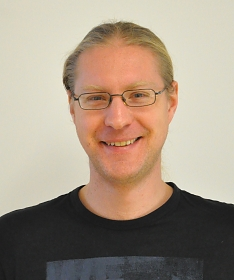Two awards for Dr. Manuel van Gemmeren – Ph.D. Student of the institute receives Otto Hahn Medal and Otto Hahn Award
Dr. Manuel van Gemmeren who worked until February 2015 in the department of Homogeneous Catalysis has just received two prestigious awards for his outstanding research work. At the annual meeting of the Max Planck Society in Saarbrücken he was honoured with the Otto Hahn Medal and the Otto Hahn award. The awards were granted for his development of exceptionally active and selective organocatalysts.

Dr. Manuel van Gemmeren who worked until February 2015 in the department of Homogeneous Catalysis has just received two prestigious awards for his outstanding research work. At the annual meeting of the Max Planck Society in Saarbrücken he was honoured with the Otto Hahn Medal and the Otto Hahn award. The awards were granted for his development of exceptionally active and selective organocatalysts.
Dr. van Gemmeren is one of 30 junior scientists that were awarded this year with an Otto Hahn Medal for their excellent doctoral thesis by the Max Planck Society. The medal is endowed with 7500 Euro. Additionally, Dr. Manuel van Gemmeren received the Otto Hahn Award that apart from him was awarded to only one other recipient of the Otto Hahn Medal. This award is intended for particularly outstanding winners of the Otto Hahn Medal, it allows the awardee to choose a Max Planck Institute and to set up their own research group there.
Dr. Manuel van Gemmeren worked on his Ph.D. thesis in the List Group from 2011 until 2014. After that he went to the University of Tarragona, Spain, as a postdoctoral fellow. Since May 2016 Dr. van Gemmeren works as a group leader at the Westfälische Wilhelms-Universität in Münster and has started a junior research group. His aim is to develop new methods of synthesis to selectively activate typically inert chemical bonds.
In the publication “Outstanding“ by the Max Planck Society, Dr. Manuel van Gemmeren describes his research work as follows:
„In my research I study how typically unreactive substances can be brought to reaction selectively by employing a suitable catalyst. During my doctoral work, I developed extremely strong chiral acids which, in the context of asymmetric counteranion directed catalysis, facilitate enantioselective reactions of challenging sub¬strate combinations. I am currently investigating reactions in which carbon dioxide is activated and serves as a building block for the synthesis of preparatively useful carboxylic acids.“
About the Otto Hahn Medal
Since 1978 the Max Planck Society honours each year young scientists and researchers with the Otto Hahn Medal for outstanding scientific achievements. The award is endowed with 7500 euros. The prize is intended to motivate especially gifted junior scientists and researchers to pursue a future university or research career. Since 1978, more than 910 scientists and researchers have been awarded the Otto Hahn Medal. The award is presented during the general meeting of the Max Planck Society in the following year. It is named after nobel prizewinner Otto Hahn who was president of the Max Planck Society from 1948 until 1960.
The Max Planck Society provides a small number of recipients of the Otto Hahn Medal each year with the opportunity to, after a stay abroad, head a small research group (formerly Otto Hahn Groups) at a Max Planck Institute of their choice. The group leader is free to design a research project thus enabling him or her to continue his or her career in Germany. At the Max-Planck-Institut für Kohlenforschung group leader Dr. Michael Römelt in the department of theory received the Otto Hahn Award in 2013 and chose the institute to build up his group.
